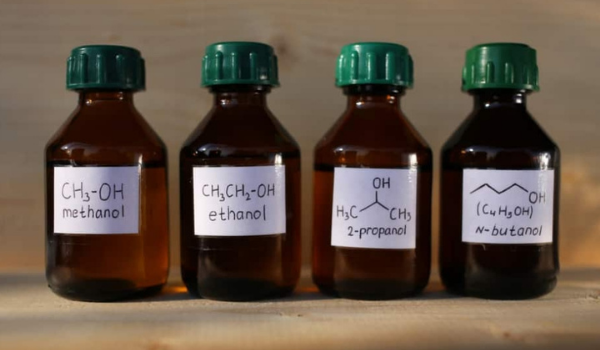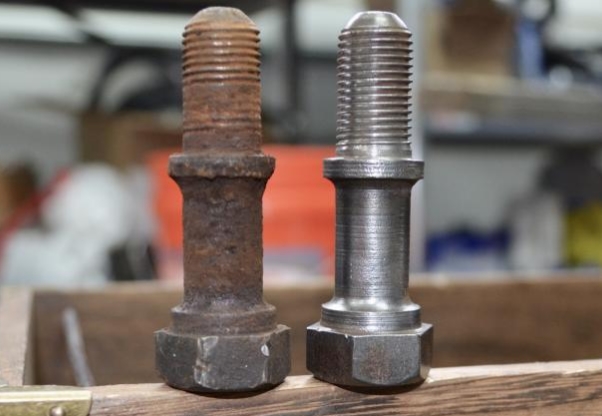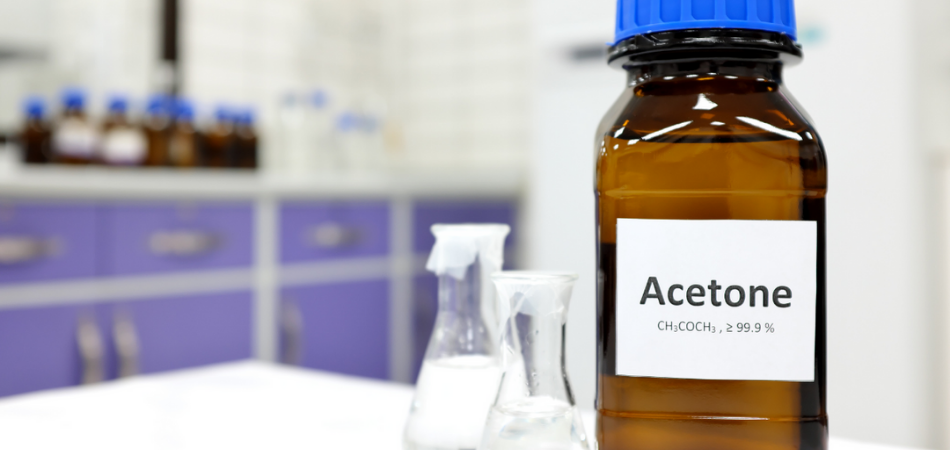There are different causes of rust, but the most common one is When iron comes in contact with oxygen and water, it produces a reddish-brown coating called rust. Rust is inevitable in some cases, and removing or preventing it can be demanding. However, does Acetone remove rust, and how effective is it?
Yes, Acetone does remove rust. It can clean up small amounts of rust from metal surfaces. Although Acetone can be just as effective as other solvents, it is best used in small quantities and on iron-free metals only.
Whether removing rust from metal at home with Acetone or at an industrial scale, the chemical is a powerful tool that can be used in several ways. In addition to its acidity, Acetone reacts with the rust to activate its ferric oxide, lifting it off whatever surface it is on. The results are a cleaner and less porous surface beneath.
If your rusty tools show signs of wear, Acetone may be the perfect weapon for eliminating rust.
Contents
What Is Acetone?
Acetone is a naturally occurring solvent that is usually used for dissolving things like nail polish, paints, and the likes. Acetone is also used to clean metals, removing particles, grease, and dirt from its surface.

Acetone is an important ingredient commonly used in paint removal products, varnish remover, and so on. Acetone can also be used to remove rust from surfaces and it is used in the preparation of metal surfaces for sandblasting coating, or rust prevention. It dissolves every form of impurity on the body of the metal.
How to Use Acetone to Remove Rust?

- Pour some acetone into a metal or ceramic container. Do not use a plastic container, acetone would melt it.
- Dip a scouring sponge into the solvent.
- Use the scouring sponge to scrub at the spots on the metal that are rusty
- After scrubbing, clean the acetone off the metal to avoid leaving stains on It. You can do this using a cloth soaked in water.
Acetone evaporates quite fast and easily, and this makes it highly flammable and can be toxic to the health of the user if necessary precautions are not taken.
Precautions to Adhere to

- Open all doors and windows when using acetone or better still, use it in an open area.
- Be sure to protect your skin and body by using protective gloves and possibly overalls and a mask to protect your nose and mouth. Inhaling it can result in diseases or health complications.
- Keep any flammable material or open fire far away from you as acetone is also highly flammable. You don’t want to start a fire.
- Keep it away from children.
- Don’t use or store near food.
- Use in little quantity.
Take into consideration that acetone cannot do much to deep-set rust. It can only remove surface rust.
Other substances that can be used to remove rust include baking soda, vinegar, citric acid, toothpaste, as well as named rust remover chemicals.
Frequently Asked Questions
Does Acetone Affect Metals?
Acetone can only remove impurities from metals. Impurities such as oil, grease, dirt, and so on. These impurities may not be visible to the naked eye and so it is important to clean the metal using acetone. This is usually done when the metal is about to be coated or cast. It also helps to prevent the corrosion of the metal.
Can Acetone Be Used with Vinegar?
You might have had what you think is a brilliant idea of mixing acetone with vinegar for cleaning or removing rust. Well, it is one of those ideas that happen to be wrong. Acetone cannot be used with vinegar. This combination can be dangerous and toxic, releasing fumes that can be irritating to the skin, the eyes, and the nose.
It is generally not a great idea to mix two household chemicals. The result could be fatal. Acetone and vinegar, being great solvents should be used individually to avoid accidents or casualties.
Can Acetone Be Used to Remove Other Types of Stains on Fabrics?
Acetone can also be used to remove other stains like grease, or oil on fabrics. To use acetone in fabrics, you have to pretest them to ensure it does not burn through the fabrics. Fabrics like cotton, silk, and any other hair-like materials do not take the presence of acetone well.
To use acetone, the fabric has to be pretested as stated earlier, and after that is successful and out of the way, the fabric has to be turned inside out in the opposite direction the stain came from.
Dip the edge of a rag into a container of acetone to absorb some of it and then use the rag to dab at the stained part of your fabric until the stain comes out.
Can Acetone Be Used on Stainless Steel?
Yes, it can be used on stainless steel. There are a few simple steps to follow.
- Dip a portion of a rag into acetone
- Use it to clean the rust spot on the stainless steel in the direction of the grain of the steel.
- Wipe the spot you just cleaned using a rag that has been soaked in soapy water.
- Rinse out the soap and use the rag to wipe the spot again.
Conclusion
Acetone can be used to remove rust from metals and it can also be used to remove stains from fabrics. With fabrics, it has to be presented to ensure that the material of the cloth agrees with acetone.
Acetone should not be used in combination with any other chemical. This is because the combination could give off toxic gasses and cause irritation to your eyes, nose, and skin.


